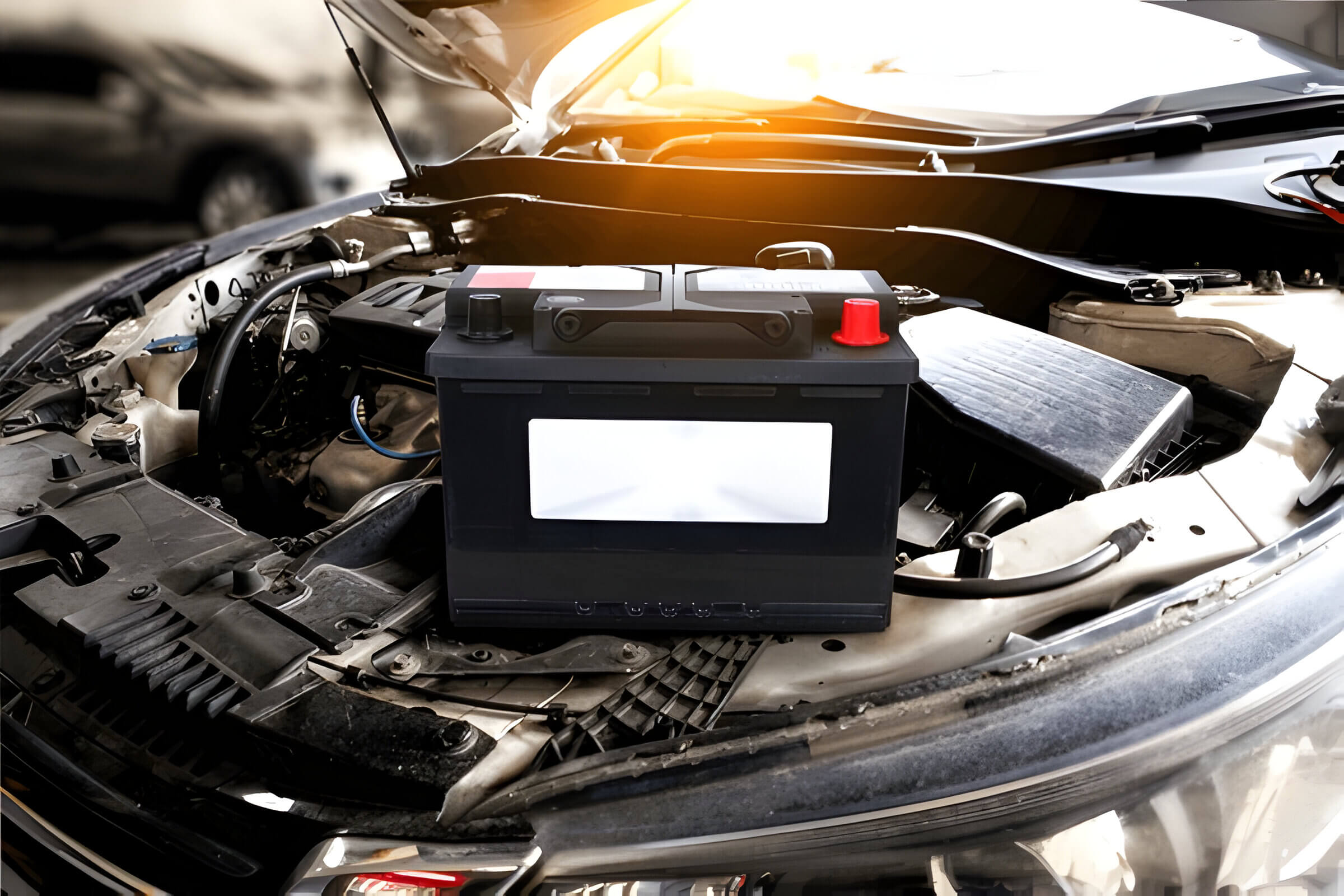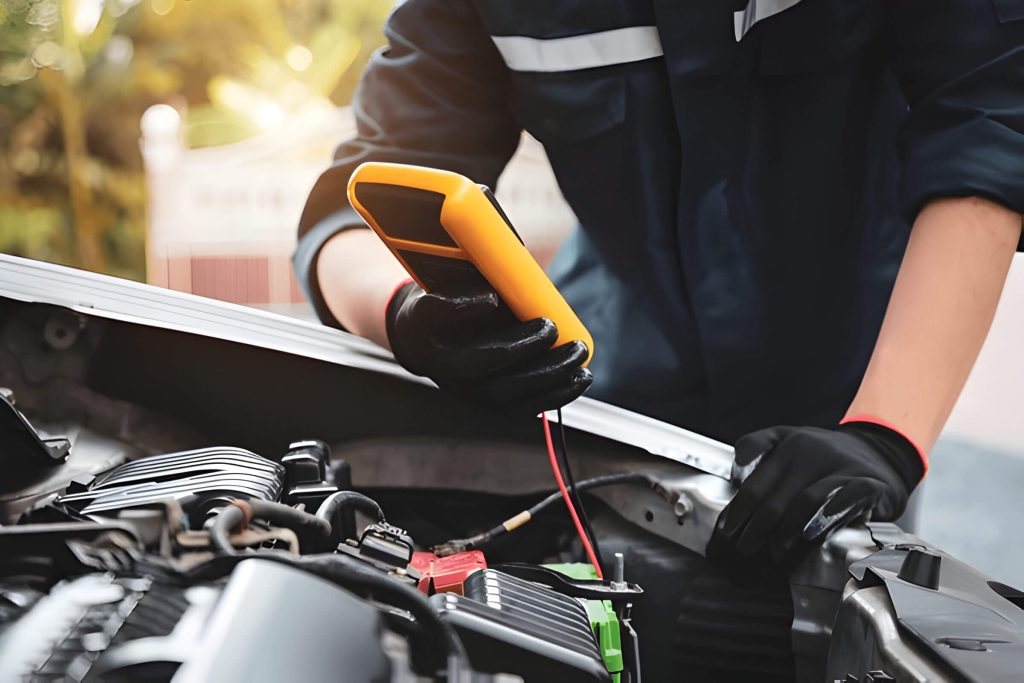
A car battery typically lasts between three to five years, but this can vary based on several factors. Understanding the lifespan of a car battery is crucial for ensuring your vehicle remains reliable and functional. This article covers these factors, signs of a dying battery, maintenance tips for extending life, testing methods, and replacement options. Learning these aspects will keep your vehicle running smoothly.
Common Factors That Affect Car Battery Life
Understanding the common factors that affect car battery life is crucial for maintaining your vehicle’s performance and reliability. Several elements can influence how long your car battery lasts, and being aware of these can help you take preventive measures.
One of the primary factors affecting car battery life is temperature. Extreme temperatures, both hot and cold, can significantly shorten a battery’s lifespan. High temperatures can cause the fluid inside the battery to evaporate, leading to decreased efficiency. Conversely, cold weather can slow down the chemical reactions inside the battery, making it harder for it to generate power.
Another critical factor is driving habits. Frequent short trips prevent your car’s alternator from fully recharging the battery, which over time reduces its capacity to hold a charge. On the other hand, leaving your vehicle unused for extended periods can also drain the battery due to parasitic loads from electronic systems that continue to draw power even when the car is off.
Environmental factors on car batteries are not limited to temperature alone; humidity and exposure to moisture can lead to corrosion on battery terminals and connections. This corrosion impedes electrical flow and affects overall performance.
Improper maintenance plays a significant role in what shortens car battery life. Regularly checking for signs of wear and ensuring that terminals are clean and secure can go a long way in extending your battery’s longevity.
By understanding these factors affecting car battery life, you can take proactive steps to ensure your vehicle remains reliable year-round.
Early Warning Signs Your Car Battery is Dying
One of the most crucial components of your vehicle is its battery, and recognizing the early warning signs of a failing car battery can save you from unexpected breakdowns. Here are some symptoms of a bad car battery that every driver should be aware of:
1. Slow Engine Crank: One of the most common signs of a failing car battery is a slow engine crank. If you notice that your engine takes longer than usual to start, it could indicate that your battery’s charge is weakening.
2. Dim Lights and Electrical Issues: A dying car battery often struggles to power your vehicle’s electrical components. If you observe dim headlights or malfunctioning electronics such as power windows or dashboard lights, it may be time to check the health of your battery.
3. Check Engine Light: While the check engine light can indicate various issues, it can also signal problems with your car’s battery. It’s essential to get a diagnostic test to determine if the issue lies with the battery or another component.
4. Corroded Battery Terminals: Visible corrosion on the metal parts connecting your car’s cables to its battery terminals is another symptom of a bad car battery. This corrosion can lead to poor electrical conductivity and further exacerbate starting issues.
5. Swollen Battery Case: Extreme temperatures can cause the casing around your car’s battery to swell, which is an indication that internal chemical reactions have gone awry. A swollen case usually means it’s time for a replacement.
6. Old Age: Car batteries typically last between three and five years. If yours falls within this age range or older, it’s wise to have it tested regularly and consider replacing it before problems arise.
Recognizing these early warning signs not only helps in maintaining optimal vehicle performance but also ensures safety on the road by preventing unexpected failures due to a dying car battery.
The Role of Regular Maintenance in Extending Car Battery Life
Regular maintenance is crucial in extending the life of your car battery and ensuring optimal performance. By following a few simple car battery maintenance tips, you can avoid unexpected breakdowns and save on costly replacements.
First, keep your battery clean. Dirt and corrosion can interfere with the electrical connections, reducing efficiency. Regularly inspect the battery terminals and clean them with a mixture of baking soda and water to remove any buildup.
Second, ensure that your battery is securely mounted. A loose battery can vibrate excessively, causing damage to internal components and reducing its lifespan. Check the mounting brackets periodically to make sure they are tight.
Third, monitor the electrolyte levels if you have a conventional lead-acid battery. The electrolyte should cover the plates inside the battery; if it’s low, top it up with distilled water. However, be cautious not to overfill it.
Fourth, avoid short trips whenever possible as they don’t give your alternator enough time to recharge the battery fully. If you primarily use your vehicle for short drives, consider using a trickle charger to maintain a healthy charge level.
Lastly, be mindful of extreme temperatures as they can affect your car battery’s performance. In cold weather, park in a garage or use an insulated blanket designed for batteries. In hot weather, try to park in shaded areas or use sunshades inside your vehicle.
By incorporating these practices into your routine car care regimen, you can effectively extend the life of your car battery and maintain its reliability over time.
When and How to Test Your Car Battery’s Health

Knowing when and how to test your car battery’s health is crucial for maintaining the longevity and reliability of your vehicle. A healthy battery ensures that your car starts smoothly and all electrical components function properly. Here are some key points to consider.
When to Check Your Car Battery Health
Typically, you should test your car battery at least twice a year, ideally before the onset of extreme weather conditions like summer heat or winter cold. However, if you notice signs such as dim headlights, slow engine crank, or dashboard warning lights, it’s advisable to check the battery immediately.
How to Test a Car Battery
1. Visual Inspection: Start with a basic visual inspection. Look for any signs of corrosion on the terminals or any visible damage on the battery case.
2. Voltage Test: Use a multimeter to measure the voltage of your car battery. A fully charged battery should read around 12.6 volts when the engine is off.
3. Load Testing: Load testing involves applying a load to the battery while measuring its performance under stress. This can be done using specialized testing tools for car batteries available at most auto parts stores.
4. Hydrometer Test: For batteries with removable caps, you can use a hydrometer to check the specific gravity of each cell’s electrolyte solution, which indicates its state of charge.
By regularly testing your car battery and understanding how it performs under different conditions, you can prevent unexpected breakdowns and ensure that your vehicle runs smoothly year-round.
Your Options When It’s Time for a New Car Battery
When it’s time to replace your old vehicle’s battery, understanding your options can help you make an informed decision. Choosing the right replacement car battery is crucial for ensuring your vehicle’s performance and reliability. Here are some key considerations and best places to buy a new car battery.
First, identify the correct type and size of the battery that fits your vehicle. Check your owner’s manual or consult with a professional mechanic to ensure compatibility. It’s important to consider factors like cold cranking amps (CCA) which indicate how well the battery will perform in cold weather, as well as reserve capacity (RC) which measures how long the battery can run if the alternator fails.
Once you’ve determined the specifications needed, you can explore various places to purchase a new car battery. Auto parts stores such as AutoZone, Advance Auto Parts, and O’Reilly Auto Parts offer a wide selection of batteries along with expert advice from staff members. Big-box retailers like Walmart also carry car batteries at competitive prices, often with installation services available on-site.
For those who prefer shopping online, websites like Amazon and Battery Mart provide extensive options and customer reviews that can guide you in making an informed choice. Additionally, many local mechanics or dealership service centers offer replacement services where they not only sell but also install the new battery for you.
In summary, when replacing your old vehicle’s battery, it’s essential to choose one that meets your car’s requirements and buy it from a reputable source. Whether through auto parts stores, big-box retailers, online platforms or local service centers, there are plenty of reliable options available to ensure you get back on the road without any hiccups.



